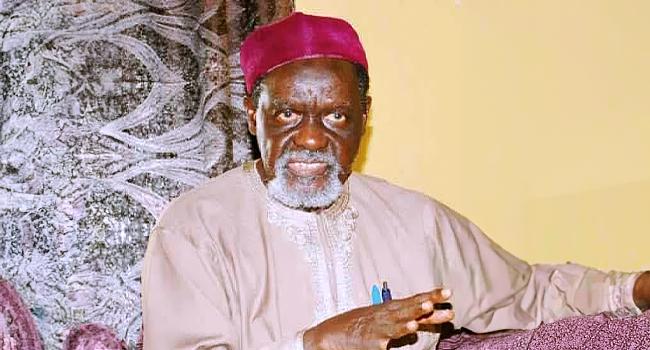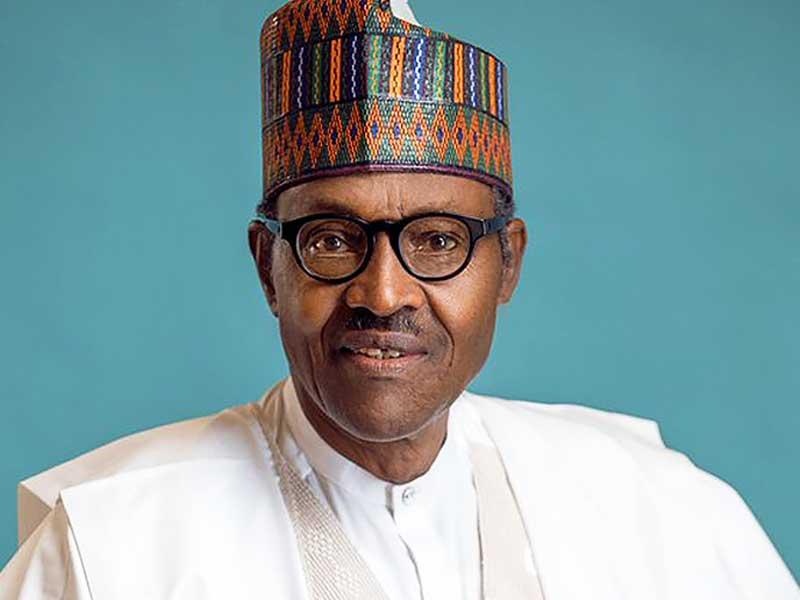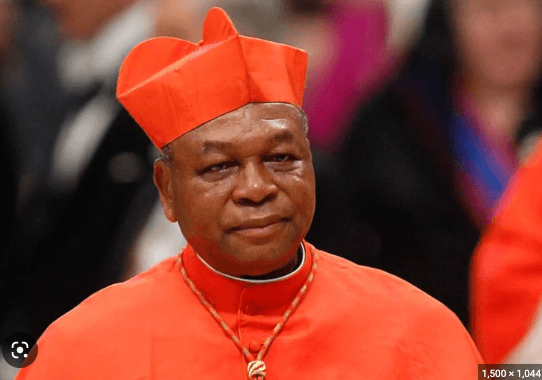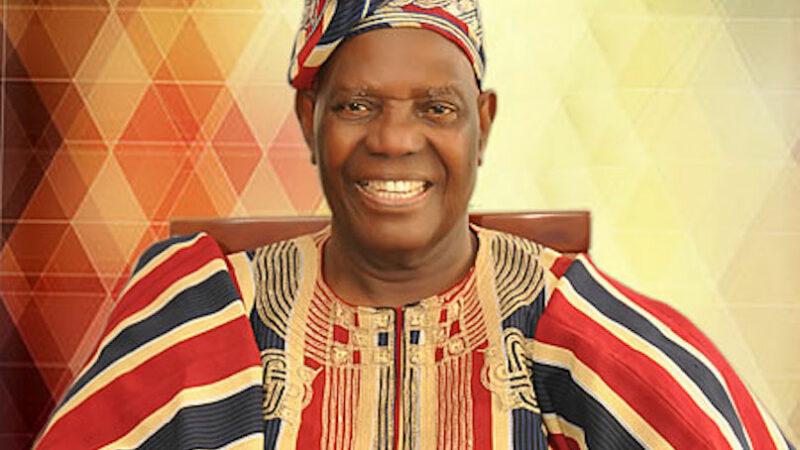Former President Buhari’s self-assessment does not totally reflect national realities, writes Monday Philips Ekpe
Last week’s occasion of the conferment of national honours on the then incoming president and vice president, Senator Bola Ahmed Tinubu and Senator Kashim Shettima, presented former President Muhammadu Buhari a chance to spring a surprise. He alluded to the Holy Bible to drive home a point. “I have run a good race. I have finished my course. It is now time for another to take up the baton,” the elated retired general turned politician told his audience. Some people think that the credit belongs to his speech writer, an argument which makes no sense as Buhari is sound enough to own whatever he says in public, whether written or extempore.
That statement is original to Apostle Paul who, towards the end of his ministry, rendered it thus in Second Timothy 4:7,8: “I have fought a good fight. I have finished my course. I have kept the faith. Henceforth there is laid up for me a crown of righteousness which the Lord, the righteous judge, shall give me at that day; and not to me only, but unto all them also that love his appearing.” Perhaps, Buhari should have completed his own thought-line by adding, “henceforth, I return to Daura to tend to my cattle and have a peaceful retirement.”
In keeping with his repeated reminders that he couldn’t wait to lead a quiet existence far away from the burdens of governance, he took off straight from the Eagle Square in Abuja even before the presidential handover ceremony was completed on Monday. His life as a private citizen has begun effectively, having finished another sojourn to Nigeria’s apex seat for the second time. The last one was in 1985 via the military coup that brought in General Ibrahim Babangida. Whether Buhari is entitled to a tranquil rest now is between him and his Maker. However, it’s within the rights of others to assess his stewardship, an exercise that had actually been on throughout his two-term tenure; only that the judgments may now assume different tones and contents. As time moves, even those who have been supportive or patronising could make a 360-degree turn and hit him below the belt. That’s the way of rulership and followership, especially in this part of the world where the line between objectivity and subjectivity can get blurred easily.
Probably armed with that realisation, he decided to blow his own trumpet in his last broadcast on Sunday: “I am leaving behind an electoral process which guarantees that votes count, results are credible, elections are fair and transparent and the influence of money in politics reduced to the barest minimum. And Nigerians can elect leaders of their choice.” Buhari claimed credit for his own interpretation of the outcome of the 2023 general election because the country didn’t erupt in visible chaos afterwards. We can’t forget in a hurry, though, that the primaries were more like bazaars, that the governorship polls in some states and that of the presidential were below average in the estimation of many observers and stakeholders. The nation awaits anxiously for the judiciary to determine the validity or otherwise of the exercises in many instances. Justification is now being sought in the court of public opinion for the hundreds of billions of naira spent by the Independent National Electoral Commission (INEC) on the elections.
The former president also spoke about being “mindful of the need to ensure adequate infrastructure to drive economic growth. We completed age-long projects and processes notably amongst which are the Petroleum Industry Act, completion of some power projects, completion of the second Niger bridge and various important roads linking cities and states.” The two projects mentioned here – PIA and 2nd Niger Bridge – are, without doubt, accomplishments that can’t be taken away from his government. He should have even added more examples like the partial resuscitation of the railway and expansion of some airports. But that talk of “adequate infrastructure to drive economic growth” is just a fine expression of English syntax. Whatever economic policies he adopted and implemented throughout his eight years in government simply didn’t yield expected or optimal outcomes. The figures thrown up in critical areas like employment, prices of goods and services, gross domestic product, energy and both local and foreign debts are irrefutable reminders of his not so sterling performance in the sector. And leaving Nigeria comfortably in the seat of the country with the largest number of multi-dimensionally poor people in the world sufficiently mocks Buhari’s assertion that his government enhanced the “ability of the poor to earn a living” and that it “provided more food for millions.” I sincerely hope that he wasn’t thinking of the controversial school feeding programme and the 5000 naira said to have been paid to very disadvantaged Nigerians, whatever that means in the circumstance.
That last speech ended on an even more muscular note: “I feel fulfilled that we have started the Nigeria Re-Birth by taking the initial critical steps and I am convinced the in-coming administration will quicken the pace of this walk to see a Nigeria that fulfills its destiny to be a great nation. I am confident that I am leaving office with Nigeria better in 2023 than in 2015.” Well… Self-congratulation can either reinforce one’s mental and emotional wellbeing or achieve healing. It can also elicit concurrence, disapproval, disdain or anger among the listeners.
Is our country truly in a more advantageous position than it was prior Buhari’s democratic entry? One thing is certain, anyhow. It was in such a precarious situation that the clamour for change was overwhelming. The country appeared to be drifting inexorably, like it did during the Interim National Government (ING) headed by the late Chief Ernest Shonekan. Boko Haram terrorists were in firm control of some areas in the north east, while some other parts of the federation grappled with various forms of insecurity. His success in this regard, as in others, is a mixed-bag which tilts towards underachievement. And some of the economic indices that have since taken a rapid downward spiral were already taking root. I don’t subscribe to the kind of nostalgia that makes people forget completely the travails of the past because of the intensity of today’s tribulations.
The expectations and extravagant goodwill that followed Buhari into the office proved too heavy for his strong shoulders. He didn’t come prepared for the enormous task of reversing the ‘havoc’ caused by the ‘clueless’ administration of Dr. Goodluck Jonathan. Declaring his race ‘good’ is immodest. Under his watch, a good number of the persons he appointed operated below average without appropriate or prompt sanctions. Some of his ministers served out the two terms – making them the longest ever in those portfolios – without commensurate productivity. The consequences of the visible lack of supervision and coordination in his cabinet, parastatals and agencies may not be fully measured soon. One perception out there is that Buhari trusted his appointees too much to expect them to underperform or fail. Read: delegating authority while abdicating responsibility. That can’t be a leadership virtue. Examples of this overconfidence in his subordinates abound. Many times, citizens were at the mercy of officials and left to their own devices.
I am not chronicling the failings of the previous government neither have I joined those who think that nothing worthwhile was recorded then. Buhari and his team have played their part in the socio-political and economic evolution of Nigeria. “May history be kind to you,” his successor, Senator Bola Ahmed Tinubu, prayed for him in his inauguration speech some days ago. The ex-president and his admirers should adopt that prayer because the disillusioned and the desperate in our land today are numerous.
Dr Ekpe is a member of THISDAY Editorial Board





